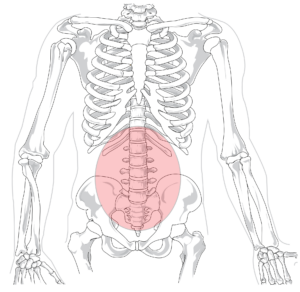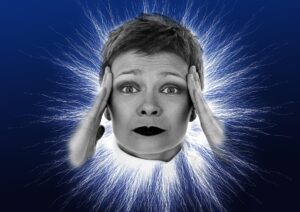More “Miracle Cures” For Back Pain and Migraines
Here We Go Again… Every time a celebrity doctor mentions some “new” supplement or product that supposedly gets rid of back pain and headaches I get flooded with questions from my physical therapy patients about them.
Sometimes the recommendations are valid. Some of the products and supplements really can help with pain and other problems.
Sometimes they are… well let’s just say sometimes they aren’t such a good idea.
Apparently last week on the Dr. Oz Show he (and some guests) did just that.
For a summary of the show’s content you can CLICK THIS LINK
So in preparation for the questions I expect to get from my patients I did some research on the two supplements mentioned.
What Is Corydalis and What Does It Do?
The first one is Corydalis which is an herb used in Chinese medicine.
One study (see the references below) was done with mice and rats. Findings showed that, at least in the test subjects (remember – mice and rats) an extract of the herb did show anti-inflammatory effects. As in all animal studies this may or may not be true for humans.
Another study showed that the libanoridin coumarin isolated from corydalis “can be considered as a potential anti-inflammatory agent.” (2) I couldn’t find libanoridin for sale as a supplement online.
The next study I found was another one that used rats as the subjects. This study used protopine extracted from corydalis at a dose of 500-100 mg/kg and found results that were “suggestive that protopine acts as a potent inhibitor of thromboxane synthesis and PAF with anti-inflammatory properties.”(3) In other words – the results suggest that this extract may act as an anti-inflammatory. However consider that for a 150 lb (68 kg) this would require a dose of 3400 to 6400 mg (or 3.4 to 6.4 grams). And I was, incidentally, unable to find protopine for sale from any supplement company.
Finally – the last article I came across was a human trial. “Results from this study suggest that C. yanhusuo and A. dahuricae may have a potential clinical value for treating mild to moderate pain.”(4) This, in my opinion, must have been the article that was used by the producers to validate the segment on the show.
The test used in this last study is the cold pressor test. I did not have access to the full pdf version of the study (only the abstract) so I’m not sure how the test was done nor am I certain about what conclusions the authors came to regarding the use of those supplements / substances for other types of pain.
What Is Magnesium Citrate and What Does It Do?
Magnesium is a naturally occurring mineral. Magnesium citrate is simply magnesium with citric acid (and apparently it has laxative effects).
Magnesium deficiency has been linked to the development (aka pathogenesis) of migraine headaches.
The first study was a human trial and looked at subjects with migraines without aura. According to the authors the “results have made us think that magnesium is a beneficial agent in prophylaxis of migraine without aura and might work with both vascular and neurogenic mechanisms.” (5)
The next study is one you may want to look at if you are suffering from migraines. You can find a full pdf copy of it HERE.
From the abstract: “Studies have shown that preventive treatment with oral magnesium and acute headache treatment with intravenous magnesium may be effective, particularly in certain subsets of patients.” (6)
Conclusions
Before I give my opinions here’s my disclaimer…
ALWAYS check with your doctor before trying any new supplements to make sure they are okay to try (and that they don’t interfere with any other medications you may be taking).
That said…
It seems, at least from my quick research into these supplements, like magnesium may show some promise for migraine headache sufferers. Magnesium citrate is a relatively inexpensive supplement and seems to be well researched for this application.
I’m less confident about the corydalis. It may have at least some anti-inflammatory properties but I wonder about it’s potency and cost efficiency compared to the large variety of other available anti-inflammatory supplements and medicines.
Of course it’s up to you to decide how to proceed. At least now you know what the research says!
References:
1. Kubo, M., et al. “Anti-inflammatory activities of methanolic extract and alkaloidal components from Corydalis tuber.” Biological & pharmaceutical bulletin 17.2 (1994): 262-265.
2. Kang, Kyong-Hwa, et al. “Anti-inflammatory effect of coumarins isolated from< i> Corydalis heterocarpa</i> in HT-29 human colon carcinoma cells.” Food and chemical toxicology 47.8 (2009): 2129-2134.
3.Saeed, S. A., et al. “Anti-thrombotic and anti-inflammatory activities of protopine.” Pharmacological research 36.1 (1997): 1-7.
4. Yuan, Chun‐Su, et al. “Effects of Corydalis yanhusuo and Angelicae dahuricae on Cold Pressor‐Induced Pain in Humans: A Controlled Trial.” The Journal of Clinical Pharmacology 44.11 (2004): 1323-1327.
5. Köseoglu, Emel, et al. “The effects of magnesium prophylaxis in migraine without aura.” Magnesium Research 21.2 (2008): 101-108.
6. Mauskop, Alexander, and Burton M. Altura. “Role of magnesium in the pathogenesis and treatment of migraines.” Clinical Neuroscience 5.1 (1998): 24-27.


